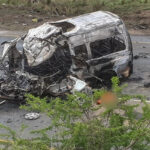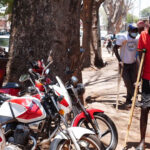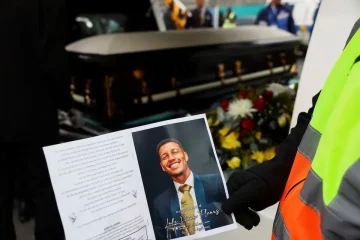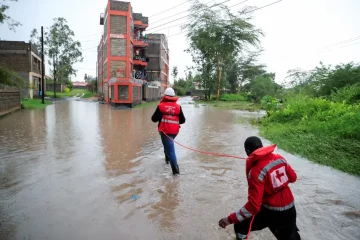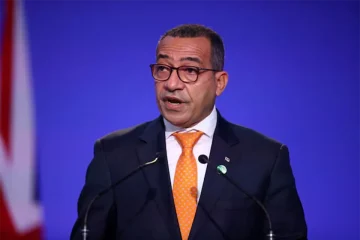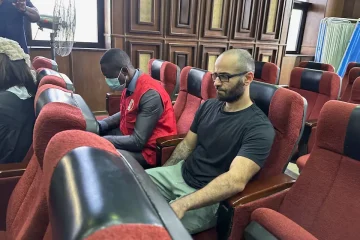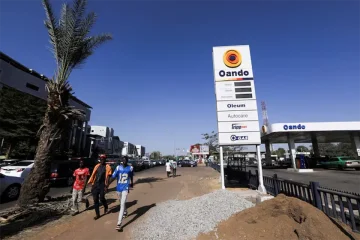SOUTH Africa’s Transport Minister Sindisiwe Chikunga says lessons from many countries around the world show that South Africa is able to drastically reduce accidents and save lives.
Chikunga made the comments after participating in a global road safety panel discussion on the opening day of the 27th World Road Congress taking place in Prague in the Czech Republic.
“It is clear from the experiences of many other countries, both developed and developing, that we in South Africa can do a lot more than what we are currently doing to improve road safety. It is fundamentally about changing our behaviour,” said Chikunga.
“We can avoid unnecessary accidents on the roads if we drive at the correct speed, taking into account what is happening in our surroundings, we can be more considerate of other road users, we can be more patient, we can avoid driving under the influence of alcohol. We can change our behaviour to prevent accidents and save lives,” said Chikunga.
South Africa has the 11th longest road network in the world and official statistics show that human behaviour accounts for between 86% and 94% of all road crashes, fatalities and injuries in the country.
Speaking during the panel discussion, Minister Chikunga said road safety was one of the most pressing challenges in South Africa and the government was addressing it with multi-pronged policy interventions by state entities and regulators.
“South Africa developed the National Road Safety Strategy 2016-2030 based on the five pillars of the UN Decade of Action for Road Safety. The strategy champions the following global plans: road safety management, safer roads and mobility, safer vehicles, safer road users and post-crash response. We are now focussed on reducing road crashes and we do this annually, monthly, weekly and daily,” said Chikunga.
“We are in the process of classifying traffic road safety as an essential service to be visible at all times. We are collaborating with the Department of Basic Education to ensure Road Safety Education is part of the curriculum at a basic level. South Africa has also established a maximum blood/alcohol content for drivers as one of the primary measures to prevent crashes, injuries and fatalities caused by drunken driving.”
SANRAL Chief Executive Officer Reginald Demana said it was clear from the discussions at the World Road Congress that regulatory interventions which targeted the youth were paying off for countries such as Ireland and Canada.
“We can take lessons from them in particular on putting in place restrictions on how many years of experience young drivers should have before being able to drive on their own, what time of the day they are permitted to drive and other areas where one really needs to put in place more regulations and control for young drivers,” said Demana.
The panel discussion was opened by former SANRAL CEO, Nazir Alli, currently the President of the World Road Association (PIARC) and the first-ever PIARC president from the African continent.
In his opening remarks, Mr Alli acknowledged that, according to the World Health Organisation (WHO), approximately 1.3 million people die each year as a result of road traffic crashes.
More than half of all road traffic deaths are among vulnerable road users like pedestrians, cyclists and motorcyclists, while 93% of the world’s road deaths occur in low- and middle-income countries.
Sub-Saharan Africa in fact records the highest road death toll, at more than 30 fatalities for every 100,000 people.
“Road safety is a shared responsibility, between drivers, other road users and pedestrians. Furthermore, we need to ensure that the Road Safety Education material we produce is tailored to the unique conditions in the various countries,” said Alli.
“While innovation in the quest for improved mobility is no doubt a global priority, it can never overshadow the tragic loss of life and must in fact be used to arrest this trend.”
The United Nations Secretary-General’s Special Envoy for Road Safety, Jean Todt, shared his message of support for the congress virtually, encouraging the universal commitment that PIARC member countries have shown to the Decade of Action for Road Safety, whereby road deaths should be halved by 2030, as well as Vision Zero, that ultimately advocates for zero road fatalities.
South Africa’s challenges and approach to road safety are not unique.
Several other Ministers, from at least 20 countries across the globe, including Burkina Faso, Mozambique, Spain, India, Canada and Japan, painted a similar picture of pedestrians being most vulnerable, and challenges with speeding, distracted drivers, especially using mobile phones and drunken driving.
In sharing some of the strides made in the Czech Republic to improve road safety, Transport Minister Martin Kupka reflected on how the Czech Republic, despite having access to impressive technology, still relies on increased visible policing and making sure the rules meant to save lives, are in fact enforced.
He also noted the similarities with the challenges of high youth death rates globally, emphasising their continued efforts to drive impactful education campaigns through all relevant government structures.
In closing, Minister Kupka expressed his confidence that the delegation of Ministers from across the world is making progress and is on a positive trajectory to get their various countries to Vision Zero.
Minister Chikunga on Monday evening held a bilateral meeting with her counterpart from the Czech Republic, Martin Kupka, and agreed to cooperate on areas of mutual interest between the two countries, including roads and rail infrastructure, technology transfer, road safety and law enforcement, civil aviation and maritime.
Minister Chikunga later unveiled the South African Pavilion at the World Road Congress, showcasing the spectacular road infrastructure across South Africa.
“The Department of Transport, through agencies such as SANRAL, play a key role in our country’s economic recovery. We realise that infrastructure investment, delivery and maintenance are important if we wish to revive our economy.
Establishing an expansive and effective road network is viewed as a crucial component of the economic recovery strategy adopted by our government, and our projects are already having an impact on the economy as well as on communities in rural and urban settings,” said Chikunga.
“It is significant to note that we launch this pavilion during the 2023 October Transport Month. This is a time of the year when we are showcasing tangible deliverables in the execution of our mandate. Celebrating 25 years since the establishment of SANRAL is also an occasion when we celebrate the monumental achievements of SANRAL over that period.
The pavilion also provides information on the engineering feats that characterise innovative projects that SANRAL has developed over the years.
This includes mega projects under construction that include the N2 Wild Coast project with its iconic mega bridges of Mtentu and Msikaba, the Huguenot Tunnel in the Western Cape, the Mount Edgecombe project, to name but a few.” Chikunga said one of the significant interventions SA shared with fellow PIARC members relates to how we encourage and implement community participation in all our projects.



